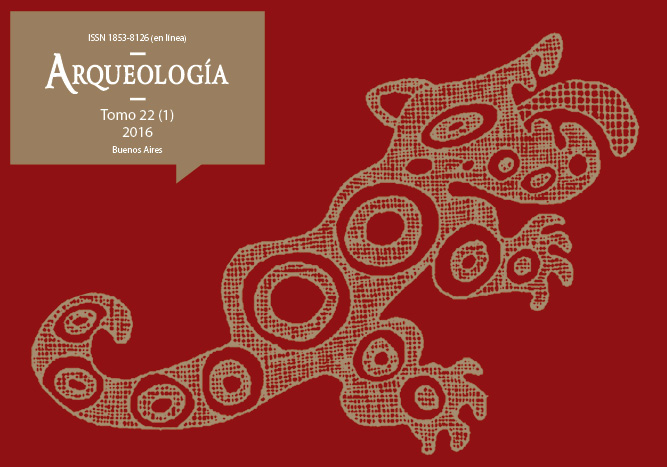Historical analysis of a specialized scientific publication: past, present and future of the journal Arqueología 25 years since its creation
Keywords:
Scientific journals, Periodicals, Editorial process, Metric sciences, Archaeology, College of Philosophy and Literature, University of Buenos Aires
Abstract
We have carried out a historical analysis of the journal Arqueología, published by the Institute of Archaeology of the College of Philosophy and Literature of the University of Buenos Aires. Our analysis is both an assessment and a retrospective look over this journal, in celebration of the 25th anniversary of its creation. Going beyond a chronological review of the various transformations and developmental stages of this publication, our main goal is to critically analyze its evolution and current conditions, taking into account the institutional context of the college and the changes that have taken place, not only in the discipline of archaeology on a national level but also in the quality requirements of the scientific system. All these phenomena have led to the establishment of the journal Arqueología as a quality edited scientific publication, with increasing global visibility and scope.Downloads
Download data is not yet available.
How to Cite
Kligmann, D. M., & Spengler, G. (1). Historical analysis of a specialized scientific publication: past, present and future of the journal Arqueología 25 years since its creation. Arqueología, 22(1), 15-60. https://doi.org/10.34096/arqueologia.t22.n1.2464
Section
Articles
Authors who publish in this journal agree to the following conditions:
- Authors retain copyright and yield to the journal right of first publication with the work registered with attribution license Creative Commons, which allows third parties to use the published always mentioning the authorship of the work and first publication in this magazine.
- Authors can make other independent and additional contractual arrangements for the non-exclusive distribution of the version of the article published in this issue (p. Eg., Inclusion in an institutional repository or publish it in a book), provided that clearly indicate that the work was published for the first time in this magazine.
- It allows and encourages the author / s to publish their work online (eg institutional or personal pages) before and during the process of revision and publication, as it can lead to productive exchanges and greater and more rapid dissemination of work published (See The Effect of Open Access).





(1)13.png)






1.jpg)
1.jpg)


13.png)
1.png)


(1)1.png)









